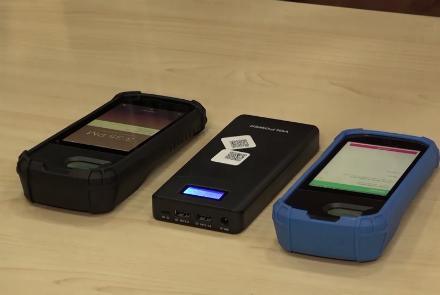The Independent Election Commission (IEC) on Friday said all biometric devices have arrived in Kabul and that the commission has kicked off sending them to provinces.
The IEC spokesman Sayed Hafizullah Hashemi said all sensitive electoral materials have already been transferred to provinces and that 22,000 biometric units arrived in Kabul on Friday.
The commission will send 21,000 devices to provinces to be used in 21,000 polling stations all over the country.
“Packaging is in progress today (Friday). The devices will be sent by helicopters to 74 districts which are insecure and transferring through land is difficult. By the end of today (Friday) army helicopters are supposed to transfer the devices along with sensitive and non-sensitive materials and the voter lists – which were printed – to the provinces. In the 70 insecure districts, the devices and materials will be sent tomorrow (Saturday),” said Hashemi.
The election commission officials said they have hired all the employees who will use biometric system on the election day in polling centers across the country.
According to the IEC, the parliamentary elections are scheduled for October 20.
Electoral watchdog organizations said it is difficult for the election commission employees to assemble and make ready all the devices within two weeks.
Watchdog organizations said it seems impossible for them that the election commission will be able to make biometric devices ready in such a short time and use them on the elections day.
“From operational point of view, the use of biometric system in the upcoming elections is impossible. In such a condition, if we go ahead to use biometric devices, it will create more confusions and it will be difficult for the election commission to manage the situation,” said Naeem Ayubzada, CEO of Transparent Election Foundation of Afghanistan.
“How the biometric system will be used? How the employees will be trained? How the materials which have not been transferred will be sent? How the materials will be divided among the 5,100 polling centers and how the people will be assured of fraud prevention?” asked Habibullah Shinwari, member of Election Watch Afghanistan.


